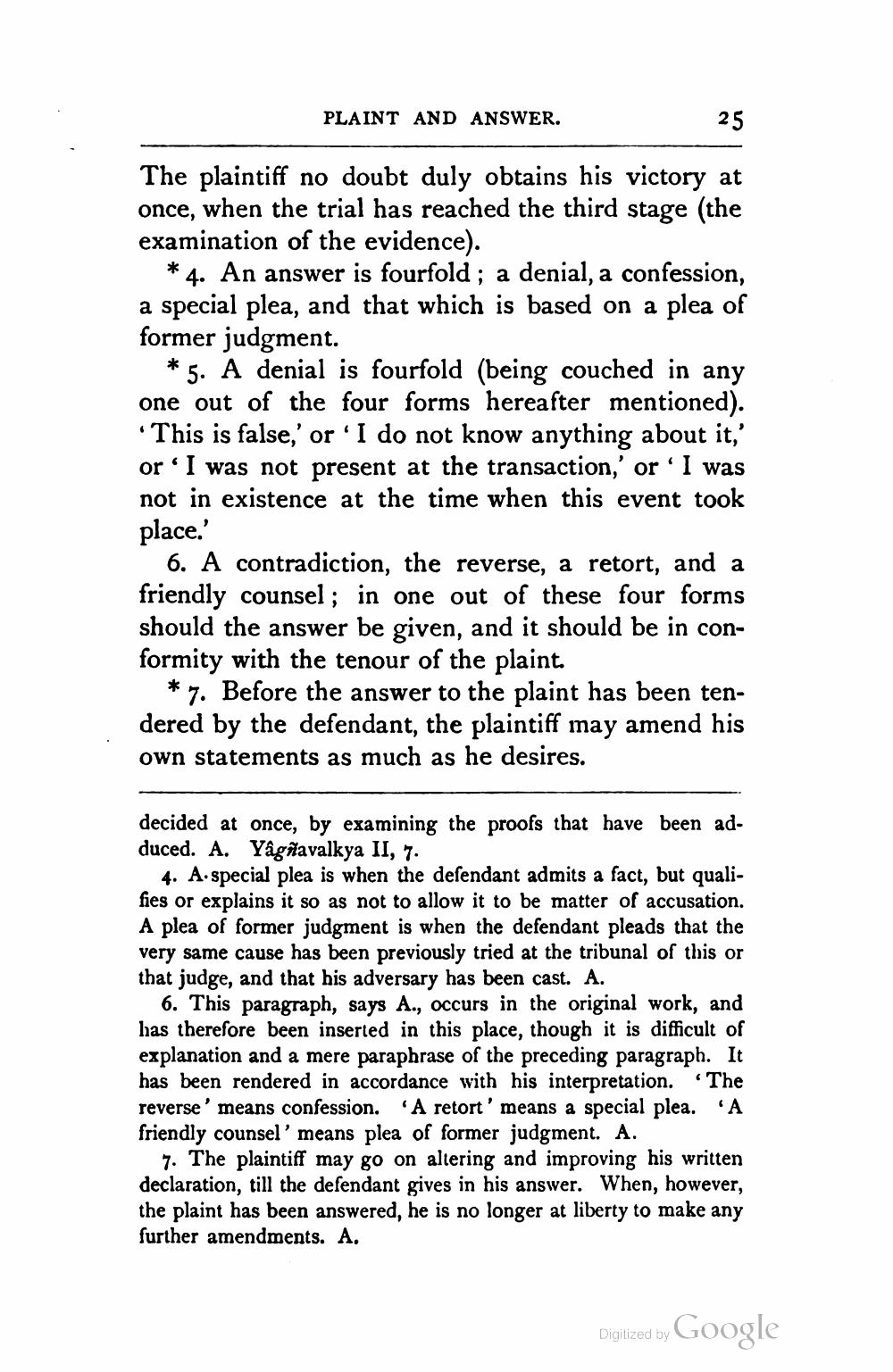________________
PLAINT AND ANSWER.
The plaintiff no doubt duly obtains his victory at once, when the trial has reached the third stage (the examination of the evidence).
* 4. An answer is fourfold ; a denial, a confession, a special plea, and that which is based on a plea of former judgment.
* 5. A denial is fourfold (being couched in any one out of the four forms hereafter mentioned). * This is false,' or 'I do not know anything about it,' or 'I was not present at the transaction,' or I was not in existence at the time when this event took place.
6. A contradiction, the reverse, a retort, and a friendly counsel ; in one out of these four forms should the answer be given, and it should be in conformity with the tenour of the plaint.
*7. Before the answer to the plaint has been tendered by the defendant, the plaintiff may amend his own statements as much as he desires.
decided at once, by examining the proofs that have been adduced. A. Yågħavalkya II, 7.
4. A special plea is when the defendant admits a fact, but qualifies or explains it so as not to allow it to be matter of accusation. A plea of former judgment is when the defendant pleads that the very same cause has been previously tried at the tribunal of this or that judge, and that his adversary has been cast. A.
6. This paragraph, says A., occurs in the original work, and has therefore been inserted in this place, though it is difficult of explanation and a mere paraphrase of the preceding paragraph. It has been rendered in accordance with his interpretation. The reverse' means confession. A retort' means a special plea. "A friendly counsel' means plea of former judgment. A.
7. The plaintiff may go on altering and improving his written declaration, till the defendant gives in his answer. When, however, the plaint has been answered, he is no longer at liberty to make any further amendments. A.
Digitized by Google




